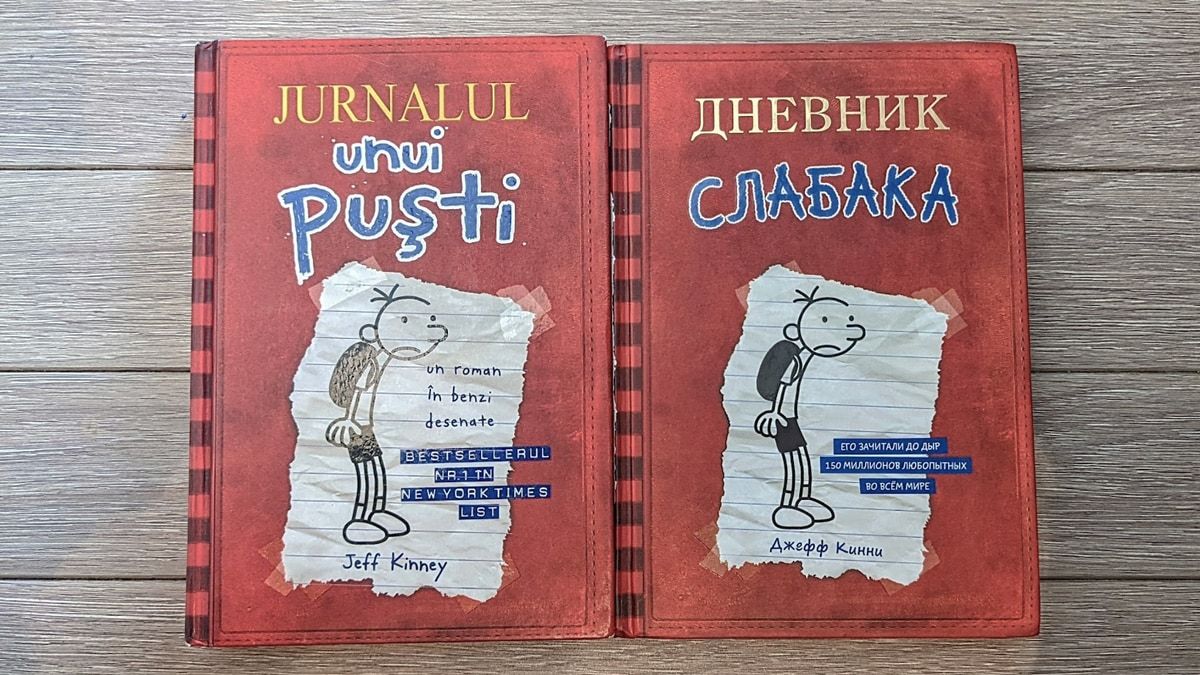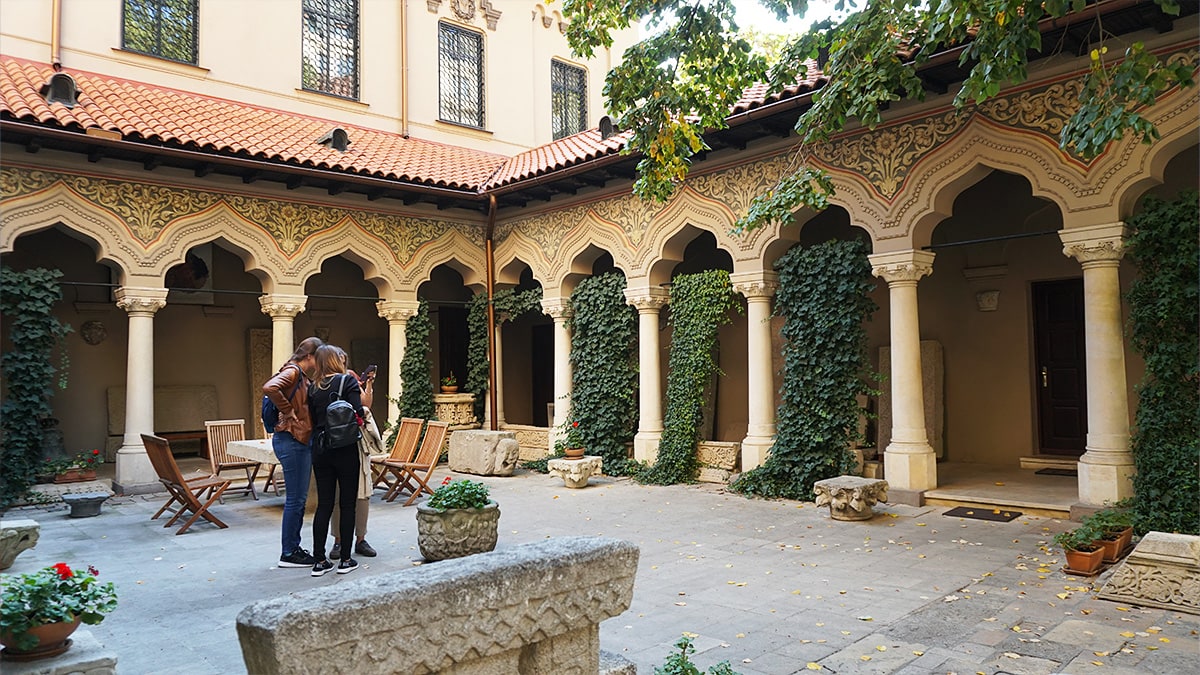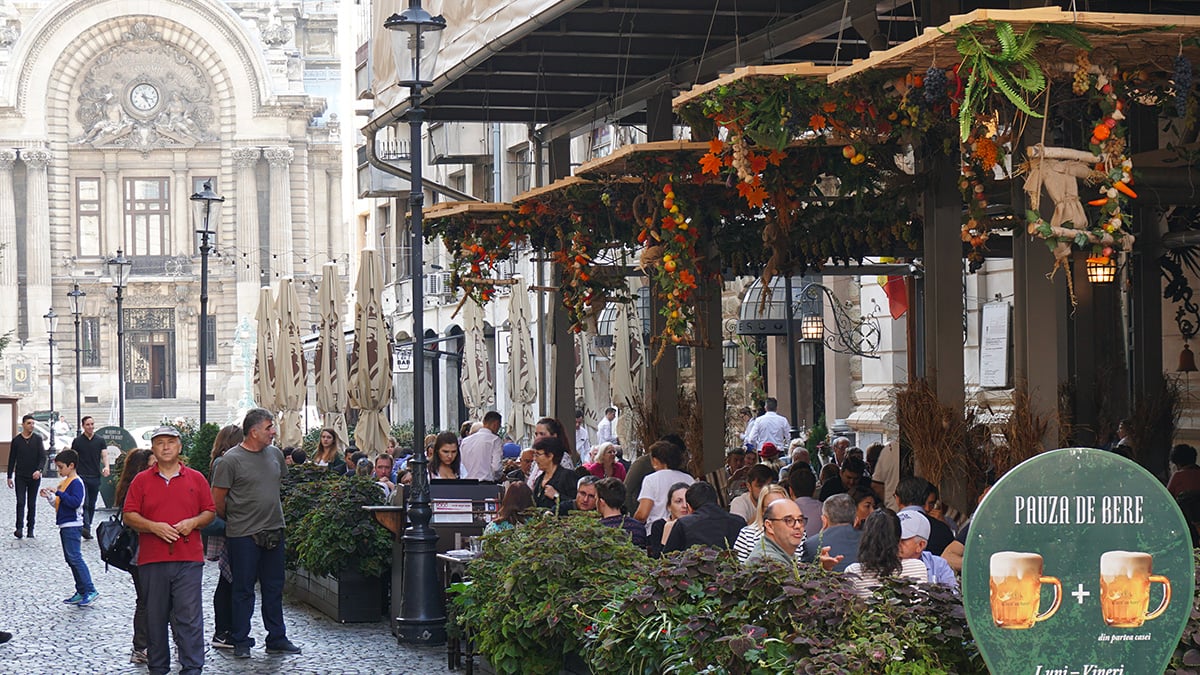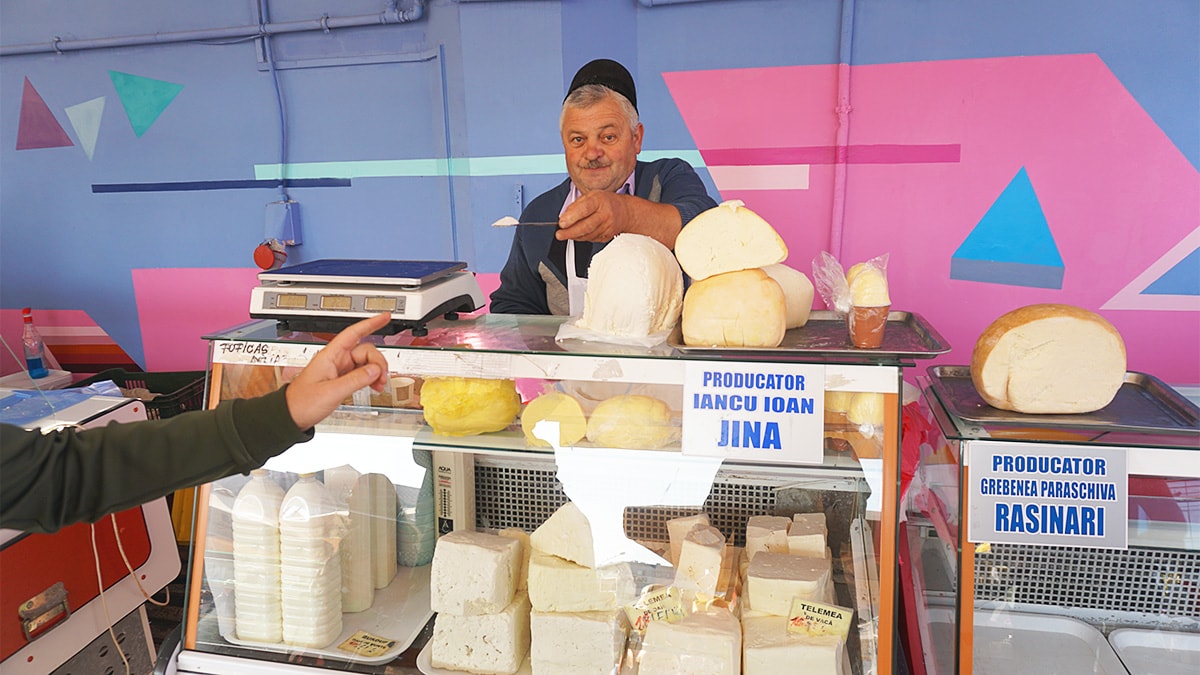Romania is surrounded by Slavic nations. Serbs, Ukrainians, and Bulgarians speak Slavic languages that closely resemble Russian. But what about Romanians?
As it turns out, Romanian isn’t a Slavic language at all, and it has very little in common with Russian. In fact, the Romanian language is a Romance language, a fully Latin language with a fundamentally Latin vocabulary and grammar.
Is Romanian Similar to Russian?
Romanian and Russian are not similar languages. Romanian is a Romance language, making it most similar to Italian or Spanish. Russian, on the other hand, is a Slavic language. Romanian does have some Slavic-influenced vocabulary, but the two are very different languages and are not mutually intelligible.
The Romanian language is descended from Vulgar Latin, the language of the Roman Empire. Russian, on the other hand, is descended from Old East Slavic, a language spoken by the Slavic tribes who once inhabited the area of present-day Belarus and Ukraine.
There are about 157 million Russian speakers in the world, compared to just 17 million Romanian speakers. Russian is spoken in Russia and in several former-USSR countries, such as Georgia and Armenia. Romanian is spoken primarily in Romania and the Republic of Moldova.
Like English, French, and Italian, Romanian is written in the Latin alphabet. Meanwhile, Russian uses the Cyrillic alphabet, the same alphabet used by other Slavic languages like Ukrainian and Bulgarian.

Romanian vs Russian: Vocabulary
While the Romanian language is not descended from Slavic, there is a a noticeable Slavic imprint on the Romanian Vocabulary. Over the years, words from Church Slavonic, used historically in the Orthodox Church, have entered into the Romanian language.
Also, regular interaction between Romanian speakers and their neighbors, namely Serbs and Bulgarians, has caused a measurable amount of Slavic vocabulary to enter the language.
As a result of these influences, there are many Slavic words in Romanian that are similar to their cognates in Russian. This may give Russian speakers a slight advantage when learning Romanian, and vice versa.
Here are some Romanian words with Slavic origins that look and sound like their Russian cognates:
| English | Romanian | Russian |
| yes | da | да (da) |
| cup | ceașcă | чашка (chashka) |
| sugar | zahăr | сахар (sakhar) |
| tea | ceai | чай (chay) |
| voice | glas | голос (golos) |
| coat | palton | пальто (pal’to) |
| hell | iad | ад (ad) |
| border | graniță | граница (granitsa) |
| potato | cartof | картофель (kartofel’) |
| carrot | morcov | морковь (morkov’) |
That being said, most of Romanian’s vocabulary is not Slavic, but Latin. In particular, Romanian has a technical vocabulary that largely borrows from French, a product of the country’s Francophile elite who influenced the language in the 18th and 19th centuries.
Therefore, while the two languages share some common vocabulary, most words in Russian and Romanian are not similar at all.
Romanian vs Russian: Grammar
While Romanian and Russian are not descended in recent history from a common language, they do happen to have some grammar in common.
Romanian and Russian Both Feature Noun Declension
Most importantly, both Romanian and Russian grammar utilize a system of cases (noun declension). Cases are not used in English. If you’re not familiar with cases, they’re rules that dictate how nouns transform and take on different endings.
Romanian has three cases: nominative/accusative, dative/genitive, and vocative. Russian has six cases: nominative, genitive, dative, accusative, instrumental, and prepositional.
To illustrate how cases are used in each language, let’s look at an example. Take the sentence, “I told the man”.
The word for man in Romanian is “om”, but the word man must decline according to the rules of the dative case in this sentence. So, the resulting sentence is, “i-am spus omului“.
In Russian, the word for man is мужчина (muzhchina). But, as in Romanian, this word must decline according to the rules of the dative case in our example. Our sentence translates in Russian to “я сказал мужчине” (ya skazal muzhchine).
Notice how in both languages, the word man takes on an altered form when it is the indirect object of an action (dative case).
Romanian is very unique in that it is the only Romance language that features noun declension. The system of cases used in Romanian is inherited from Vulgar Latin.
Most English speakers learning Romanian find noun declension to be the most challenging aspect of Romanian grammar. Russian speakers should have no problem learning and using cases in Romanian, as they’re less complex to use than cases in Russian.
The Russian Language Lacks Articles
Unlike Romanian, Russian lacks articles. Articles are words like the English “the” and “a”, or the French words, “Le”, “Les”, “Un”, “Une”.
Since the language lacks articles, there isn’t technically a way to say “I am eating the sandwich” in Russian. This sentence in Russian comes out as “I eat sandwich”.
In Romanian, on the other hand, articles play an extremely important role in the language’s grammar. Romanian has articles for the word “a” in the feminine and masculine forms, “o” and “un”.
Definite articles in Romanian are even more interesting. Definite articles are the equivalent of the English word “the”, or the French words “Le”, “La”, and “Les”.
In Romanian, definite articles aren’t words. Instead, definite articles are added to the end of nouns as suffixes. The most common definitive suffixes for masculine and female singular nouns, respectively, are “ul” and “a”.
So, while to say boy in Romanian is “băiat”, to say “the boy” you’d say “băiatul“. Similarly, book translates as “carte”, whereas “the book” translates as “cartea“.
Further complicating the matter, articles in Romanian have different forms for each of the different cases.
Since there are no articles in Russian, this is an area where Romanian grammar is more complex.
Russian Verbs Have Aspect
Russian grammar features verb aspect, while Romanian grammar does not. Verb aspect is a stereotypical feature of Slavic languages such as Russian.
Verb aspect, generally speaking, is a grammatical concept whereby verbs come in pairs of two–one verb to describe an action in the past/present/future that was/is/will be ongoing or uncompleted, and another verb to describe the same action in the past/future that was/will be completed at once.
This means a single verb taken from English or Romanian translates into two verbs in Russian. The two aspectual forms (imperfective and perfective), which represent the same action, don’t always resemble each other, so they can be tricky to learn.
For example, the imperfective form of to speak is говорить (govareet), while the perfective form of to speak is сказать (skazat).
This unique concept makes Russian challenging to master for Romanian speakers.

Do Romanian and Russian Sound the Same?
Casual listeners may find that Romanian and Russian sound similar. In particular, English speakers may think the languages sound alike because both Russian and Romanian are full of “sh” consonant sounds, have trilled r’s, feature palatalized consonants, and use the word “da” for “yes”.
I’ve been around lots of English speakers who, upon hearing Romanian for the first time, remark that it sounds similar to Russian. Some even describe it as “Italian spoken with a Russian accent”.
There are a few reasons why the two languages may sound similar to untrained ears:
“Sh” Sound
The staticky “sh” sound we English-speakers associate with Russian is ever-present in Romanian. In the Romanian alphabet, it is represented by the letter ș.
Trilled R’s
Romanian r’s are trilled, meaning all r’s are pronounced as rolled r’s. The r sound in Romanian is very light, however, making it more similar to the r sound in Russian than to the heavy trilled r used in Spanish or Italian.
 Sound
This Romanian letter/sound doesn’t exist in other Romance languages, such as Italian or Spanish, but it exists in Russian as the letter ы. The sound, which sounds like you’ve been punched in the gut, has a very Slavic feel to it. It further adds to the Russian vibe of spoken Romanian.
Palatalized Consonants
Palatalized consonants occur in Russian (and other Slavic languages, such as Polish) but are totally absent in the Romance languages…except for Romanian. It’s a very Slavic-sounding feature of spoken Romanian.
Basically, palatalized consonants are consonants pronounced with an airy, whispery “y” sound at the end. In Romanian, palatalized consonants commonly occur at the end of pluralized words, such as priorități (pronounced pree-or-ee-tutz-ee with the final ‘ee’ sound being super soft).
Da/Да/Yes
The word for “yes” in both Russian and Romanian is “da/Да”. It’s pronounced exactly the same in both languages. Since yes is an extremely common and important word in all conversations, you hear it a lot in both languages.
So, while Romanian and Russian aren’t in the same language family, they share a considerable number of accent and pronunciation similarities. If you’re unfamiliar with either language, you may think they sound alike.

Is Russian or Romanian Harder to Learn?
Russian is much harder to learn than Romanian. Although both languages have complex grammar, Russian has more cases, verb aspect, a fully Slavic vocabulary, and uses the Cyrillic alphabet. Romanian’s Latin alphabet and largely Latin/French-derived vocabulary make it easier to learn, especially for English speakers.
If you’re considering whether to learn Russian or Romanian, you may be wondering which language is more challenging. As someone who has studied both languages, here’s why Romanian is definitely the easier option.
Romanian Vocabulary is Easier to Learn
Like English, much of the technical vocabulary in Romanian is derived from French. During the 18th and 19th centuries, Romanian aristocrats, who were largely educated in French, made a concerted effort to sophisticate the Romanian language by infusing it with French-derived technical vocabulary.
So, to English speakers, many Romanian words will look familiar to their counterparts in English (we, too, have borrowed a lot from the French). You can probably guess what these Romanian words mean: meniu, influent, adresa, biscuit.
By contrast, Russian has a mostly Slavic vocabulary. And, unlucky for you, we have almost no Slavic words in the English vocabulary. Therefore, memorizing new words in Russian is a real challenge.
Romanian Uses the Latin Alphabet
With few exceptions, Romanian uses essentially the same alphabet as the English language. Sure, there are a few new letters to master, but these aren’t challenging to learn.
Russian, on the other hand, uses an entirely different alphabet. Like Bulgarian and Ukrainian, Russian is scripted with the Cyrillic alphabet. This can be a real impediment to learning, and will take awhile to master.
Romanian Grammar is Easier to Master
While Romanian grammar is definitely complex (especially compared to English grammar), it’s definitely not the hardest grammar out there.
I would describe Romanian grammar as Italian grammar plus noun declension. So while Romanian is definitely a step up in difficulty from other Romance languages, it’s not nearly as challenging as Russian.
Russian grammar is more complex than Romanian grammar. There are 6 cases in Russian as opposed to just 3 in Romanian. Russian also has verb aspect, weird representations of the verbs “to be” and “to have”, and other challenging concepts not found in Romanian.

